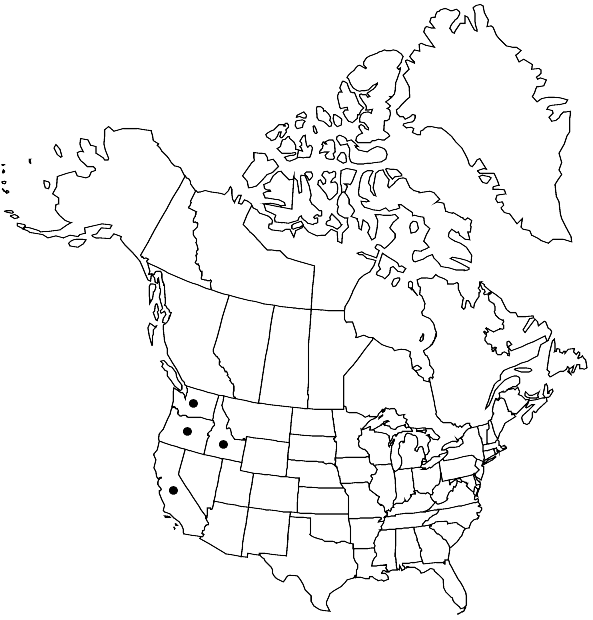Schistidium cinclidodonteum
Lindbergia 6: 108. 1980,.
Plants in open, occasionally compact tufts or mats, olivaceous, brownish, or nearly black. Stems 1–8 cm, sometimes denuded of leaves at base, central strand absent. Leaves usually curved to falcate, sometimes falcate-secund when dry, linear-lanceolate to ovate-lanceolate, concave proximally, weakly keeled or concave distally, 1.4–5 mm, mainly 2-stratose distally and with 2-stratose strips extending to leaf base adjacent to costa; margins plane or somewhat erect, rarely weakly recurved, smooth, 2-stratose; apices rounded or acute, usually ending in a fleshy, multistratose apiculus, rarely tipped with a short, denticulate awn; costa percurrent, rarely short-excurrent, smooth; basal marginal cells quadrate or short-rectangular; distal cells quadrate or rounded, often angular, 6–11 µm wide, smooth, sometimes weakly bulging-mammillose, weakly sinuose. Sexual condition autoicous. Capsule reddish brown, ovoid, cupulate, or short-cylindric, 1.3–1.8 mm; exothecial cells mostly short-elongate or isodiametric, usually irregularly angular, thin-walled, sometimes trigonous; rim darker colored than capsule wall, often red; stomata absent; peristome patent, 350–600 µm, red, finely papillose, strongly perforated. Spores 8–13 µm, smooth.
Phenology: Capsules mature late spring to early summer.
Habitat: Wet or dry rocks, often along intermittent watercourses
Elevation: high elevations (2000-3500 m)
Distribution

Calif., Idaho, Oreg., Wash., Europe.
Discussion
Schistidium cinclidodonteum and the closely related S. occidentale are characterized by the long, often linear-lanceolate and falcate leaves. Both species often form large, rather flat mats over rock along watercourses. The proboscis-like (discussed in S. Flowers 1973) fleshy apiculus distinguishes the two from all other species of the genus except S. crassithecium, which differs in having a much smaller apiculus, and more erect, ovate-lanceolate leaves. Examination of the type of Grimmia pacifica, not recognized here, reveals that the only salient difference between that taxon and S. cinclidodonteum is the presence of a short, denticulate awn.
Selected References
None.